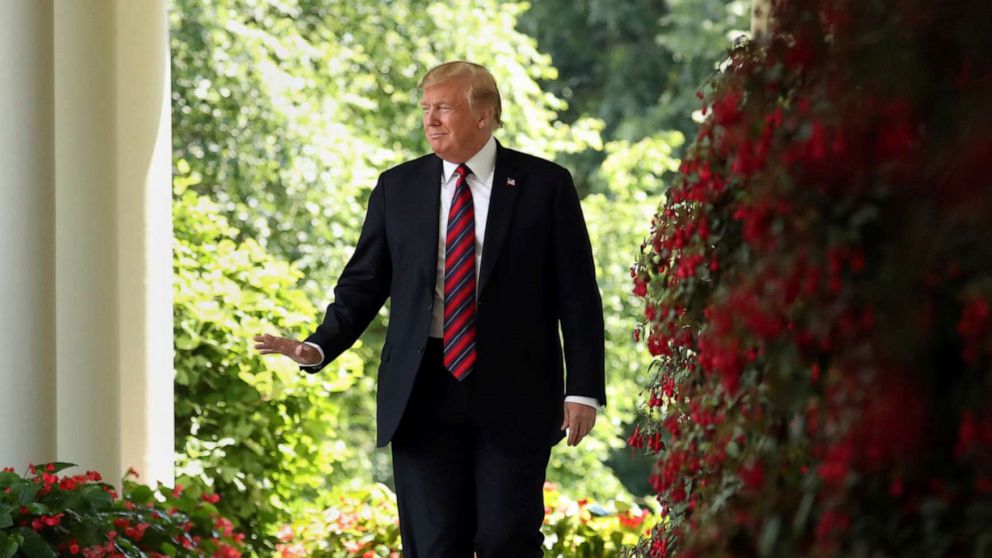What really led to the Russia investigation? Trump, Barr want to know as they question legitimacy of FBI probe
Both President Donald Trump and his attorney general, Bill Barr, on Friday questioned the legitimacy of the FBI's investigation into whether Russia secretly co-opted members of Trump's campaign ahead of the 2016 presidential election.
On Twitter, Trump was characteristically dramatic, accusing federal investigators of "treason." And in an interview with Fox News, Barr deployed the types of phrases Trump often uses, wondering whether investigators had "abused their power" or "put their thumb on the scale."
Despite using those terms, Barr insisted, "I'm not saying that happened ... It's something we have to look at."
In fact, Barr has tasked a long-serving federal prosecutor in Connecticut, John Durham, to conduct the broadest look yet into the origins of the Russia probe.
"As far as I'm aware, no one has really looked across the whole waterfront," Barr told Fox News.
According to Barr's recent statements, here are some key questions he wants answered:
-- When did the FBI first start conducting surveillance -- or "spying" -- on a member of the Trump campaign, and was it appropriate?
-- Did the FBI have enough information to warrant a wide-ranging investigation in the first place?
-- As the investigation progressed, did the FBI inappropriately use "opposition research" as a basis for more invasive investigative steps?
-- Was the investigation otherwise conducted appropriately and free of political bias?
In his interview with Fox News, Barr claimed much of what transpired during the FBI investigation has yet to be made public.
Nevertheless, there is a significant public record reflecting the origins of the investigation.
'Very odd to me'
The story of how members of Trump's team ended up in the FBI's cross-hairs actually began several years before there even was a 2016 campaign.
In 2013, the FBI field office in New York became concerned when an American businessman, back in the United States after living in Moscow for three years, began engaging with two Russian spies, sharing with them what he later acknowledged was non-public -- but in his view relatively useless -- information.
One of the Russian spies was secretly recorded saying he wanted to recruit the American as an intelligence source, according to court documents in the case.
The businessman, Carter Page, was never charged, but he raised eyebrows again three years later when he joined Trump's foreign policy team and was then enlisted to deliver the July 2016 commencement address at a prominent graduate school in Moscow -- a school with ties to Kremlin officials.
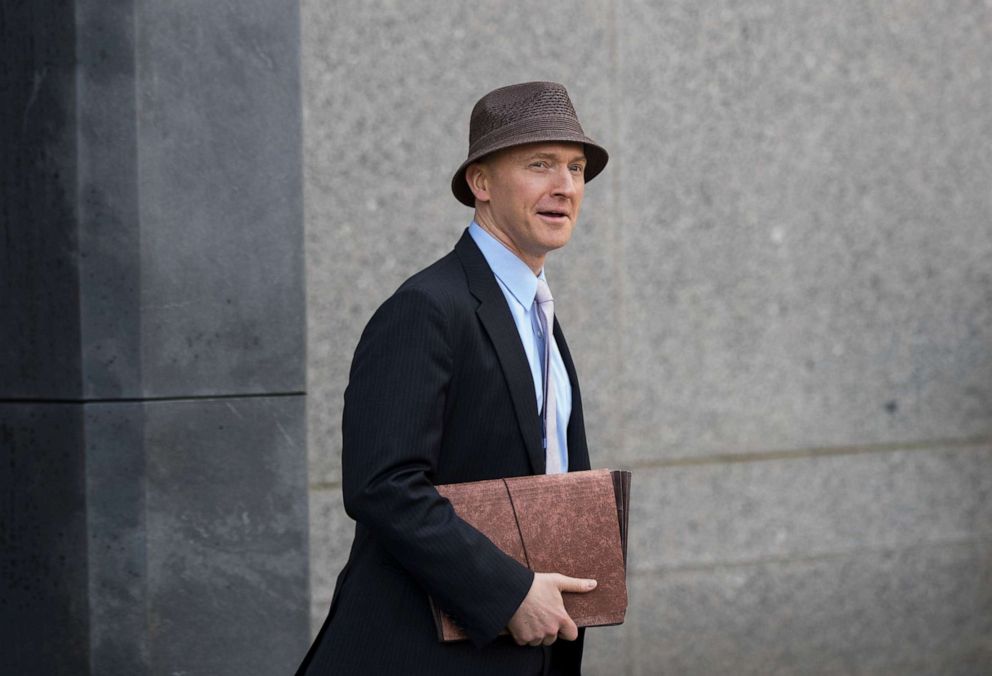
"The last American to have that honor was Barack Obama in July 2009," the former U.S. ambassador to Russia, Michael McFaul, recently testified to Congress. "It was very odd to me that this rather obscure businessperson would be given such an honor."
Asked at the time whether Page would be meeting with Kremlin officials while in Moscow, a Kremlin spokesman insisted, "I do not know."
But as special counsel Robert Mueller recently noted in his final report, "Page's July 2016 trip to Moscow and his advocacy for pro-Russian foreign policy drew media attention."
A week after Page's commencement address, a since-outed FBI informant approached Page at a symposium on global affairs hosted by Cambridge University in London, according to Page.
The informant, Cambridge professor Stefan Halper, chatted with Page about foreign policy and politics, and they remained in contact over the next year, as reflected in correspondence later released by Page.
In his Fox News interview on Friday, Barr said he is trying to find out if July 2016 marked the FBI's earliest effort to conduct surveillance on a member of Trump's campaign.
It is still unclear whether -- at that point -- Halper approached Page at the behest of the U.S. government. The FBI officials who later launched the wide-ranging Russia probe didn't seek Halper’s help until weeks after the London symposium, a source familiar with the matter told ABC News.
'An extraordinary allegation'
By the end of July 2016, the FBI’s top counterintelligence officials had become deeply concerned over Russia's increasingly bold efforts.
The Democratic National Committee had announced a major breach of its computer systems and fingered Russia as the culprit. And then on July 22, 2016, four days before the DNC was going to officially nominate Hillary Clinton as Trump's rival for the White House, the online organization WikiLeaks posted tens of thousands of internal documents heisted from the DNC's servers.
"Was this just to stir up trouble, or was this ultimately to try to influence an election -- and of course that's a serious proposition,” James Clapper, then the nation’s top intelligence official, wondered in public after the WikiLeaks release.
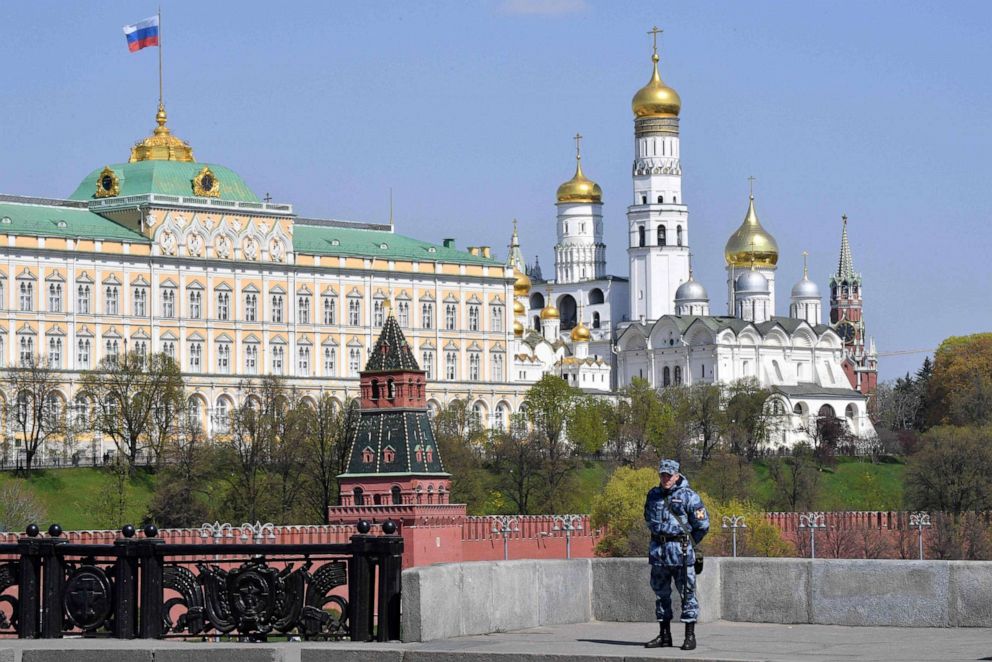
The FBI then received a tip: One of Trump’s foreign policy advisers, George Papadopoulos, claimed the Russian government had sent "indications" to Trump’s staff that "it could assist the Campaign through the anonymous release of information damaging to [Clinton]," according to Mueller’s final report.
Papadopoulos made the claim during a meeting with an Australian diplomat two months earlier, and -- in the wake of the WikiLeaks release -- the Australian government flagged the FBI, Mueller's report said.
It was "an extraordinary allegation," suggesting "there was a coordinated effort by the Government of Russia to elect somebody here in the United States," Peter Strzok, one of the FBI’s top counterintelligence agents at the time, recalled to lawmakers last year.
An investigation was officially opened on July 31, 2016.
Strzok would supervise it, and two FBI attorneys, James Baker and Lisa Page, would assist. Others inside FBI headquarters, including senior leadership, were briefed.
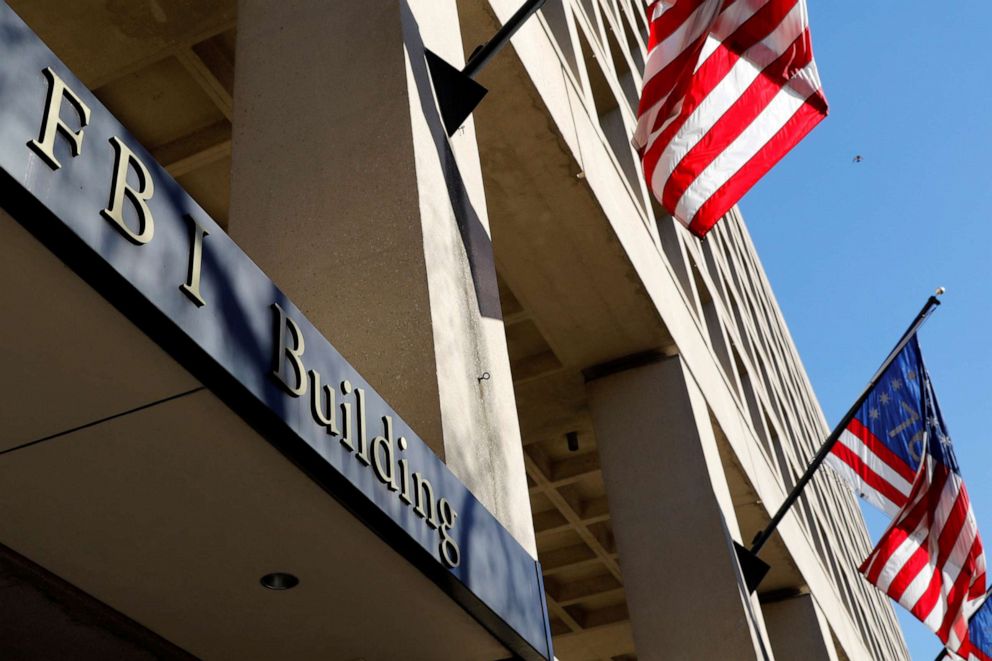
In his interview with Fox News on Friday, Barr said he thought the matter "wasn't [being] handled in the ordinary way that investigations or counterintelligence activities are conducted."
"This was handled in a very senior level" and "it was sort of an ad hoc small group," he said.
In fact, it was largely the same group that had just finished the counterintelligence probe of Clinton's use of a private email server when she was secretary of state. And in a report last year, the Justice Department's inspector general said "previous sensitive investigations also had been run" out of FBI headquarters so "FBI senior executives [could] exercise tighter control" over potentially explosive matters.
As described by Lisa Page, the FBI team faced two key questions at the start of the Russia probe: Was the tip tied to Papadopoulos even true, and -- if so -- who on Trump’s campaign would be in a position to receive helpful information from Russia?
As the initial source of the tip, and as someone who claimed to know about Russia’s offer of assistance, Papadopoulos was an obvious possibility. There was also Page, who was in Moscow two weeks earlier and had previously been targeted for recruitment by Russian spies.
Other campaign staffers with suspected ties to Russia came under scrutiny too.
"We were very judicious in deciding who we would open on," Lisa Page told lawmakers last year.
At the time, there was "absolutely no preconceived belief or feeling at all" that Trump himself was implicated, she said.
"[But] if there is somebody on his team who wittingly or unwittingly is working with the Russians, that is super serious," she added.
Halper’s help
The FBI team began its investigation slowly and carefully, trying not to "tip off" the Russians, Baker testified to Congress last year.
Investigators first pored through information already in the hands of the U.S. government, Baker said. And they also turned to Halper, the FBI informant, for help, according to those familiar with the matter.
Halper still knew how to get in touch with Carter Page. And in early September 2016, Halper sent an unsolicited email to another Trump campaign member: George Papadopoulos.
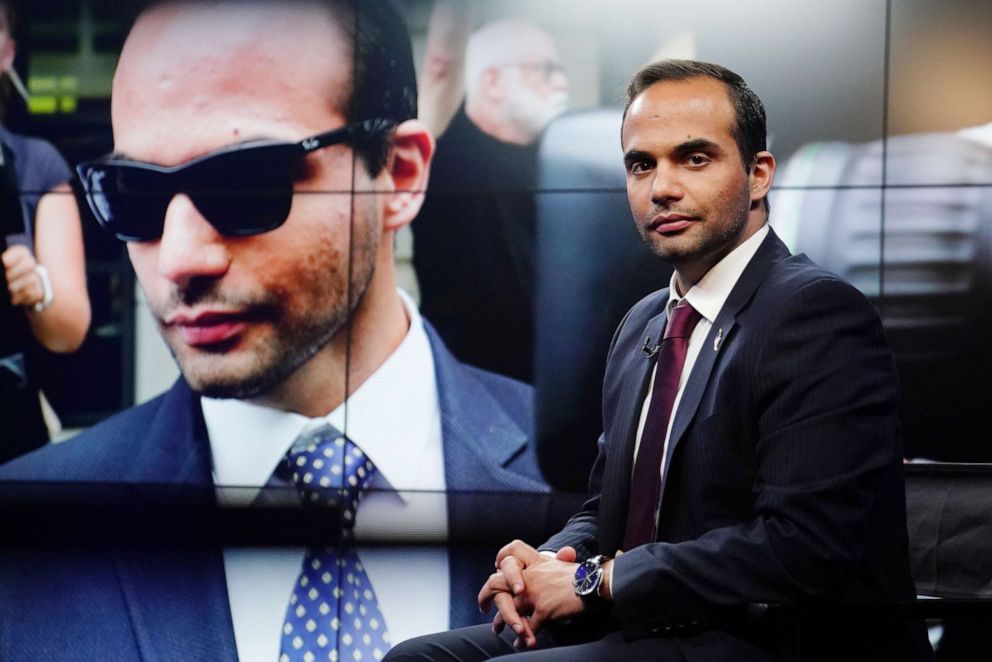
In the email, Halper asked Papadopoulos if he would be interested in working with him on energy-related projects in the Middle East, Papadopoulos told Congress last year.
The two had never met, but Halper’s outreach -- and a promise of a free flight and five-star stay overseas -- soon led to several meetings in London, according to Papadopolous.
First, there was the meeting with Halper's “assistant” -- a "young lady named Azra Turk, which I [now] think is a fake name," Papadopoulos said.
In fact, according to the New York Times, the FBI sent "Azra Turk" to London “to help oversee the politically sensitive operation.”
Then, there was a meeting between just Halper and Papodopoulos over drinks at London’s Sofitel.
"[Halper] starts talking about Russia and hacking and if I'm involved, if the campaign is involved," Papadopoulos recalled. "And I think I pushed back, and I told him, 'I don't know what the hell you're talking about. ... I don't know anyone in the campaign who's involved.'"
Halper "was quite disappointed" because he "was expecting something else," Papadopoulos testified.
'The dossier'
Just as Halper was meeting with Papadopoulos, the FBI team in Washington received a set of new allegations -- allegations that were highly alarming but hardly verified.
In several reports compiled over many months, a longtime source for the U.S. government, former British spy Christopher Steele, laid out salacious claims about Trump himself and alleged an "extensive conspiracy" between the Kremlin and members of Trump's campaign, including Carter Page.
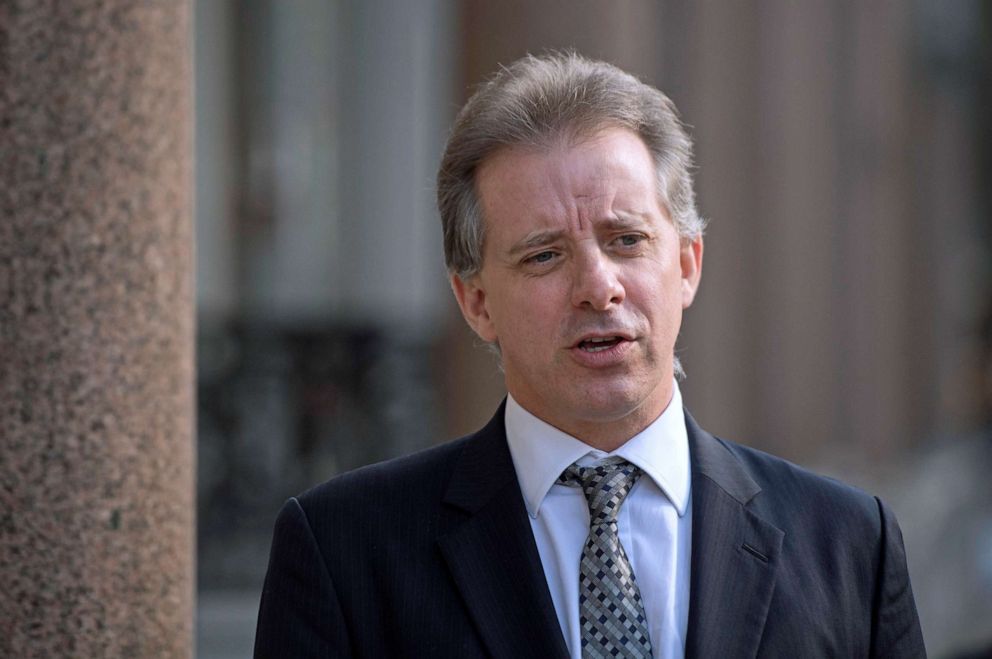
One of the reports alleged that Page held "secret meetings in Moscow" with two associates of Russian president Vladimir Putin, and that Page was told the Kremlin might be willing to share damaging information about Clinton.
All of the allegations -- recorded in what is now known as “the dossier” -- were based on what Steele's own sources were telling him.
Steele first relayed the allegations to an FBI agent overseas two months earlier in July 2016, but the claims didn't reach the team in Washington until September 2016, several former officials have testified.
Neither Strzok nor Lisa Page had even heard of Steele before then.
"Immediately" the FBI team "set about trying to prove or disprove every single factual statement in the dossier," Page later recalled to Congress.
The FBI team tried to identify and contact Steele’s sources, to independently vet their information. And, according to testimony from Lisa Page, sometime in September 2016 the team started to talk about whether they should use the Foreign Intelligence Surveillance Act -- or FISA -- to secretly intercept Carter Page's communications.
A federal judge would have to approve the move.
On Oct. 21, 2016, weeks after Page was pushed out of Trump's campaign, the FBI submitted a FISA application to U.S. District Court Judge Rosemary Collyer, a Republican nominee.
The application -- much of which is still classified -- noted the cyber-theft of DNC emails, recounted Trump's overtures to Russia, cited Papadopoulos by name, described Page's previous interactions with Russian spies, and detailed Steele’s allegations about Page.
It described Steele as a "reliable" FBI source whose previous "reporting has been corroborated and used in criminal proceedings." But, the application said in a footnote, Steele conducted his latest research "likely looking for information that could be used to discredit" Trump.
The application did not disclose that Steele's work was being funded by pro-Clinton operatives and the DNC, who hired the research firm Fusion GPS to dig into Trump's connections around the world.
Collyer approved the secret surveillance, and it would be approved by a federal judge three more times over the next year, even after Steele was cut off from the FBI for speaking with a reporter about his work for the FBI.
Mueller’s take
In the end, Mueller's report said the FBI and special counsel investigations "identified numerous links between individuals with ties to the Russian government and individuals associated with the Trump Campaign, [but] the evidence was not sufficient to support criminal charges."
Specifically, "the evidence was not sufficient to charge that any member of the Trump Campaign conspired with representatives of the Russian government to interfere in the 2016 election," the report said.
However, the report said Mueller's office “was unable to obtain [complete] evidence or testimony about who Page may have met or communicated with in Moscow; thus, Page's activities in Russia ... were not fully explained.”
Page has repeatedly denied any wrongdoing.
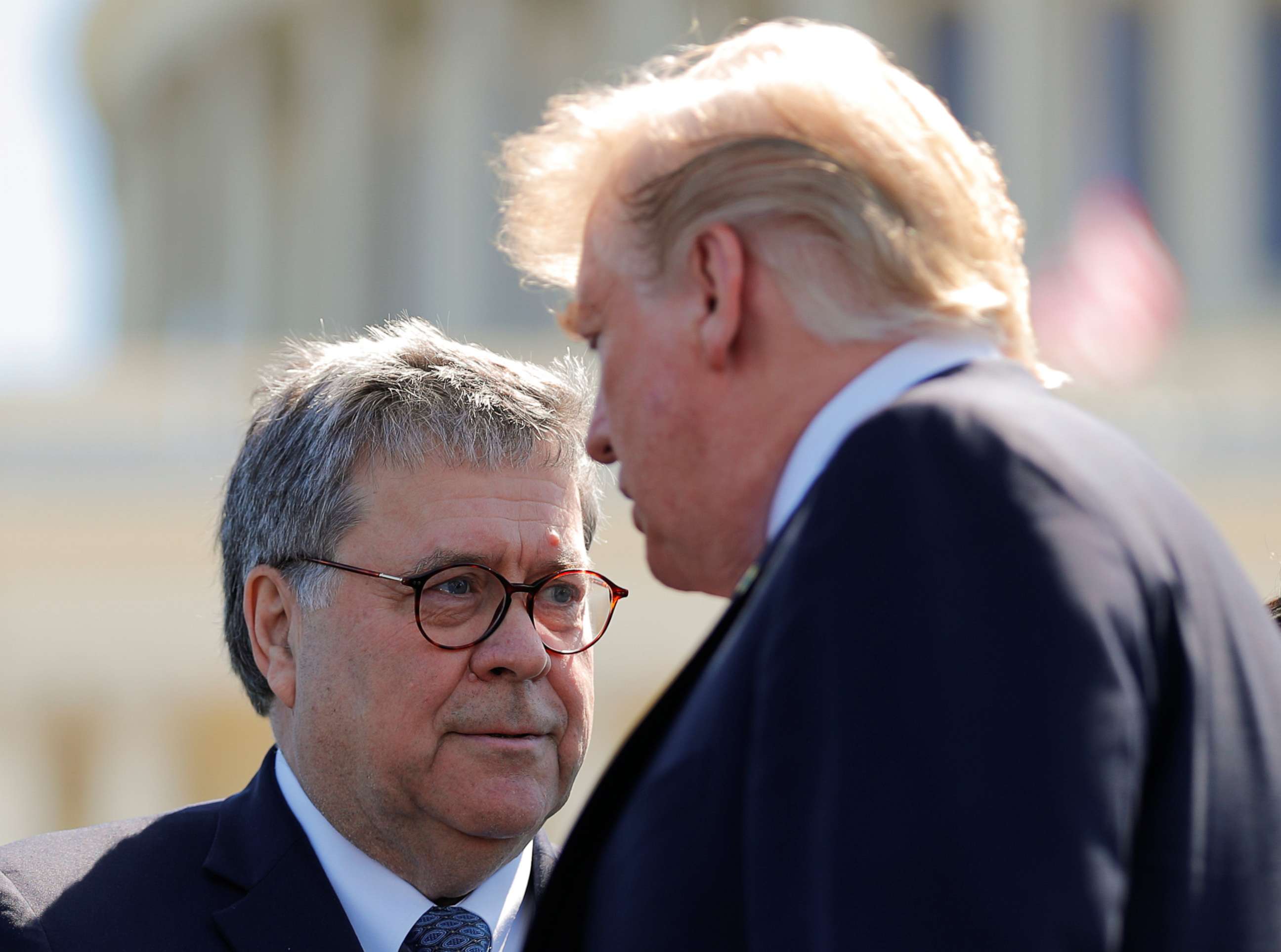
'I need to explore that'
Barr has recently expressed several possible concerns related to "the genesis and the conduct of intelligence activities directed at the Trump campaign during 2016," as he put it.
In particular, Barr said he is "concerned" by the virulently anti-Trump text messages between Strzok and Lisa Page in the run-up to the Russia probe and in the midst of it. Those messages ultimately got Strzok fired from the FBI last year, weeks after Page resigned.
Barr also said it is not "entirely speculative" to question whether the information provided to Steele and then included in FISA applications was part of a larger effort by Russia to spread false information and sow discord in America ahead of the 2016 election.
"That is one of the areas that I am reviewing," he recently told the Senate Judiciary Committee.
And Barr said he wants to look at how the FBI handled the "dossier" and FISA applications more broadly.
"It's a very unusual situation to have opposition research like that ... [used] to conduct counter-intelligence against an American political campaign," Barr said in his Fox News interview on Friday.
He called Steele's analysis "somewhat jejune," or simplistic.
Republicans, meanwhile, have specifically raised concerns over sections of the FISA applications that recount media reports about Carter Page, even though some of those media reports likely originated from Steele, whose information was already detailed elsewhere in the applications.
"I think spying did occur," Barr infamously told a House panel last month. "The question is whether it was adequately predicated. And I'm not suggesting it wasn't adequately predicated, but I need to explore that."
The Justice Department’s inspector general has been exploring the same question for more than a year, and the findings are expected to be released in the next few months.
